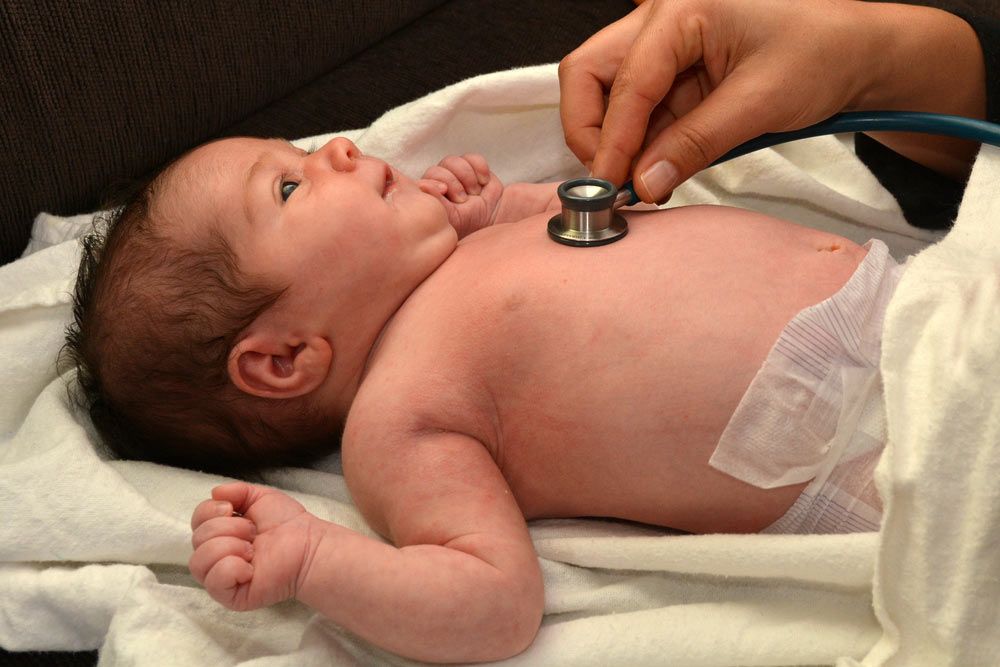
Did you know diabetes can affect pregnant women and affect their baby’s health? This condition, known as gestational diabetes, is caused by the hormones of pregnancy, which can make it harder for the body to use insulin. It is diagnosed for the first time during pregnancy and occurs in approximately 7% of all pregnancies. We spoke to Dr Rahul Verma, Director, Neonatology and General Paediatrics, Sir HN Reliance Foundation Hospital, Mumbai, who explained the impact of gestational diabetes on the mother and the baby.
Table of Content:-
Impact Of Gestational Diabetes

According to the Centers for Disease Control and Prevention (CDC), insulin resistance is a common occurrence in late pregnancy for all expectant mothers. However, certain women experience insulin resistance before conception, entering pregnancy with an elevated insulin requirement and a higher likelihood of developing gestational diabetes. Here's how it can affect the health of the mother and their baby, as listed by Dr Verma:
Risk Of Miscarriage
Did you know that keeping your blood sugar levels under control during pregnancy is crucial for a healthy pregnancy? In fact, not doing so can increase the risk of miscarriage and stillbirth. Hence, it's important to take care of yourself and your baby, so make sure to keep a close eye on your blood sugar levels.
Complications and Preterm Delivery
Dr Verma said, “There is a higher chance of too much amniotic fluid around the baby (polyhydramnios) and delivery before 37 weeks of pregnancy (preterm delivery). Such babies may need to be admitted to the newborn unit for monitoring."
Also Read: Gestational Diabetes Diet: Expert Lists Dietary Measures To Follow

Risk Of Birth Defects
Mothers who are affected by gestational diabetes should be aware that there is an increased risk of birth defects, particularly brain and spinal defects. Seeking medical advice and appropriate treatment can help to minimise these risks and ensure the health of both mother and baby.
Delivery Challenges and Birth Injuries
Due to gestational diabetes, the baby's size may be much more than normal, leading to a shoulder that gets stuck during delivery, which may necessitate a caesarean section to deliver the baby.
Health Issues in Newborns
Dr Verma highlighted, “Bigger babies may also suffer from birth injuries, like a fracture of the arm or pulling of the nerves supplying the upper limb.” There is also a possibility that babies born to a mother with gestational diabetes may have low blood sugars, which need to be monitored, or else they may cause convulsions and affect the baby's brain.
Jaundice, a treatable condition that makes the skin yellowish, is another problem faced in babies born to mothers with gestational diabetes. Such babies then need to be treated with light therapy, or occasionally; their blood needs to be changed to reduce the impact of this jaundice on the baby's brain.
Temporary breathing problems are more common in these babies and require treatment in the newborn unit.
Also Read: How Does Weather Influence Gestational Diabetes, Expert Explains
Long-Term Consequences
The risk of having diabetes later in life is higher in children whose parents had the disease during pregnancy. “Genetics and pregnancy-induced diabetes management (glucose control) may contribute to this condition. In addition, it can increase the risk of type 2 diabetes”, added Dr Verma.
Impact on Central Nervous System and Development
Dr Verma said, “Mismanagement of diabetes during pregnancy may impact the development of the Central Nervous System (CNS), potentially raising the risk of cognitive, behavioural, and developmental issues.” According to Frontiers in Endocrinology, iron deficiency caused by diabetes is thought to be one of the most significant variables affecting the developing foetal brain.
Additionally, gestational diabetes has long-term consequences on an infant's health. In particular, it raises a child's chance of becoming obese as an adult.
[Disclaimer: This article contains information provided by a registered healthcare professional and is for informational purposes only. Hence, we advise you to consult your expert if you are dealing with any health issues to prevent complications.]
Also watch this video
Read Next
French Baby Survives Rare Pregnancy Outside Uterus, Doctor Explains What Is Ectopic Pregnancy
How we keep this article up to date:
We work with experts and keep a close eye on the latest in health and wellness. Whenever there is a new research or helpful information, we update our articles with accurate and useful advice.
Current Version